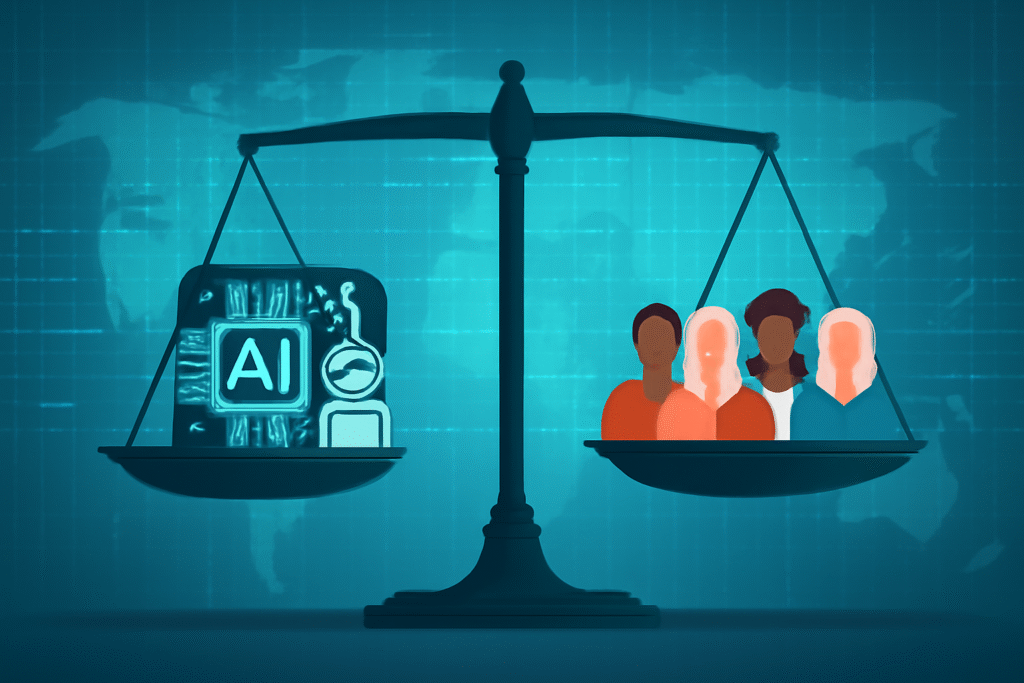Published On: October 10th 2025
Authored By: Samruddhi Pawar
ILS Law College
Abstract:
The Uniform Civil Code (UCC) has been one of the most debated issues in the constitutional and political discourse in India for a considerable time. According to Article 44 of the Indian Constitution, UCC is intended to replace the multiple personal laws on matters like marriage, divorce, inheritance, adoption, and succession, with a uniform code, related to all citizens, regardless of religion, caste, or community. UCC advocates argue that having a uniform code instead of different personal laws based on customs will allow for national integration, gender justice, and secularism. Critics argue the opposite, and contend that UCC puts at risk the autonomy of the religious minorities of India, undermining cultural autonomy and threatening pluralism in India. This article will first examine historical patterns, constitutional underpinnings, Supreme Court rulings and social considerations concerning UCC, then address normative complexities – primarily intra-constitutional tensions between fundamental rights and directive principles, federally guaranteed rights, based on constitutionally mandated federalism principles, the constraints to action by courts (to the extent that there are), and social complexities – principally different socio-religious sensibilities and traditions, gender-based and women’s rights issues, anxieties on the part of minorities, and tribal customary law. The article also draws comparative lessons from other jurisdictions, while also trying to situate its discussion in the current Indian society. All in all, the article proposes that the UCC should not be designed uniformly for the concerned communities in India, but should be progressively adopted through a process of scheduled consultation. It also sees substantial opportunities for plurality in adopting UCC in the context of Indian society.
Introduction:
India’s identity as a secular, pluralistic, democratic republic is evident not only in its political architecture but also in its legal arrangements. Although criminal laws and commercial laws are largely uniform across the continent, family and personal laws are still dictated by religiously based codes. The Uniform Civil Code (UCC), as stated in Article 44 of the Constitution of India, is meant to replace and regulate the personal laws governing marriage, divorce, adoption, inheritance, and succession. However, the discussion is full of legal and social complications. Proponents assert that UCC would promote equality, secularism, and gender justice, while opponents insist that it challenges their rights to religious freedom, cultural plurality, and minority rights.
This article will investigate the UCC in India from perspectives including historical context, historical and constitutional background, legal entanglement, social elements, judicial perspectives, and comparative studies.
Historical Background and Constitutional Basis:
Personal laws in India originated in the colonial era. While the British codified criminal and commercial laws, they did not intervene in the personal laws of religious communities for fear of backlash. After independence, the Constituent Assembly debated between implementing a uniform code for the whole country or allowing reform through a gradual process of reform through distinct religious communities. Article 44 states: “The State shall endeavour to secure for the citizens a uniform civil code throughout the territory of India” which is a Directive Principle of State Policy (DPSP) in the Constitution but, is not non-justiciable (as a DPSP) and, as such, can be seen as a guiding principle of action and governance. Some progressive leaders (for example, Dr. B.R. Ambedkar) argued in support of a UCC, on the basis that personal laws are routinely derogatory to women and contrary to the freedom and equality standards outlined in the Constitution. The majority of opposition was based on Muslim representatives to the Assembly, where the formation of a UCC was considered an infringement on their religious freedom.
Therefore, the Assembly kept a UCC intention as a directive principle and not a fundamental right.
Meaning and Scope of Uniform Civil Code:
A Uniform Civil Code refers to the replacement of multiple personal laws based on religion with one secular law for everyone.
Personal law concerns:
- Marriage and divorce
- Adoption and guardianship
- Maintenance and alimony
- Succession and inheritance of property
UCC does not interfere with religious beliefs, per se. It only deals with laws relating to civil relationships. In this respect, UCC theoretically balances the right to equality (Article 14) with the right to freedom of religion (Article 25).
Legal Complications:
While a UCC has a laudable aim, it raises intricate constitutional and legal issues.
- Breach of Fundamental Rights
Article 25 of the Constitution guarantees the right to freedom of religion, and Article 26 guarantees the right to manage religious affairs. A UCC could be challenged on the basis of these obligations if it is viewed as indirectly compelling communities to abandon the religious practices associated with family law.
- Federalism Issues
Marriage, divorce, and succession are on the Concurrent List (Seventh Schedule) so that both Parliament and State legislatures can legislate on these things. The imposition of a UCC in a uniform manner across states would probably encounter a challenge from a state claiming the independence that they as a State have under the Constitution.
- Judicial Precedents and Limitations
Indian Courts have consistently underscored the desirability of UCC but have refrained from enforcing it directly:
1) In Mohd. Ahmed Khan v. Shah Bano Begum (1985), the Supreme Court recognized that divorced Muslim women have the right to maintenance under Section 125 of the CrPC, while hinting at the need for UCC legislation to curb gender injustice.
2) In Sarla Mudgal v. Union of India (1995), the Court declared that it was improper for husbands to convert to Islam merely for the purpose of availing themselves of the benefit of multiple, simultaneous marriages, and rebutted the ongoing need for UCC legislation.
3) In Shayara Bano v. Union of India (2017), the Court struck down the practice of instant triple talaq as unconstitutional, while re-establishing its earlier position that there needs to be a uniformity in personal law.
Collectively, however, the judiciary has made it clear that legislation creating the UCC is solely the prerogative of the legislature and not the judiciary.
- Ambiguity in implementation:
One primary question is whether the UCC will fully displace personal laws or be advanced as an alternative, and perhaps as an option. For example, Goa’s Civil Code, often furnish as a prescriptive example, is not completely uniform as some exceptions occur for Christians and some other communities.
Social Complications:
The UCC issue goes beyond solely constitutional law, but also involves the complexities of Indian society.
- Religious Pluralism and Cultural Identity
The religious communities in India view their personal laws as an inextricable part of their cultural and religious identity. The UCC may improperly run the risk of being perceived as an imposition by majoritarianism, particularly by minorities such as Muslims, Christians, and Parsis.
- Gender Justice vs. Religious Freedom
Personal laws have historically disadvantaged women in areas such as divorce, maintenance, and inheritance (inferred from Muslim and Hindu communities). Supporters of the UCC argue that it will provide gender justice, and opponents argue that any reforms should come from, and at the pace of, communities rather than government imposition.
- Political polarization
The UCC has become a politically divisive issue. For some, it represents a commitment to moving in a secular direction, while others view it as a politically driven attack on minorities. This disagreement has added to the general distrust and community polarization.
- Tribal and customary laws
Tribal communities in India have customs that the Constitution protects (under the Fifth and Sixth Schedules). Implementing the UCC could alter these customs or age-old traditions, leading to social tensions, particularly in the North-East.
- Risk of Social Backlash
History tells us that there are significant challenges with even inter-religious reforms. The Hindu Code Bill (1950s) was highly contentious, but it was only for one community. A sweeping reform across all religions could provoke national reaction.
Comparative Perspective:
Insights can be gained from looking at other jurisdictions:
France and Turkey have fully secular civil codes which do not accommodate religion in family law.
Pakistan and Bangladesh retained Muslim personal law when they gained independence, with few minimal reforms.
Goa (India) has a civil code (from Portugal) that covers most communities except some, and applies equally. These examples have illustrated that we can have a uniform code, but it depends on context through history, culture, and politics.
Advantages and Disadvantages of UCC:
Advantages-
- Supports gender justice and abolishes discrimination in personal law.
- Promotes national integration through uniformity.
- Legally affirms secularism, as the state treats each citizen equally, regardless of their religion.
- Removes overlapping codes – curtails the corrosive effects of allowing simultaneously circulating legal codes in the legal system.
Disadvantages-
- Impairs religious freedom and cultural autonomy.
- Potentially alienates minorities, particularly Muslims, leading to communal friction.
- Practically unmanageable to implement in a range of diverse states and communities.
- Possibly used as a vehicle for political malfeasance, eroding trust in secular polity.
Challenges in implementation:
‘Uniformity’: Must it be identical laws for all, or could it be common principles with flexibility?
Codification: This requires harmonizing many conflicting practices across religions, which is complex.
Political Will: No government had enough political will to secure a consensus for any such action.
Public Expectations: Without the building of trust, there is resistance to expect that UCC can be for social reform, rather than just cultural imposition.
Conclusion:
The Uniform Civil Code is one of the two largest basic constitutional values in India. It is a vision of equality, justice, and secularism, but the path toward achieving it is accompanied by legal, political, and social difficulties. The struggles are to balance individual rights with community identity, secularism with pluralism, and reform with rights to religious freedom. Instead of a revolutionary type of sweeping reform, India may very well be the space for reform through a slower deliberative movement: codifying personal laws, for constitutional equality, bringing and aligning with time, creating consensus, within communities. The ultimate success of UCC will depend not simply on legislation but on Indian’s ability to reconcile diversity with democracy and secularism.




